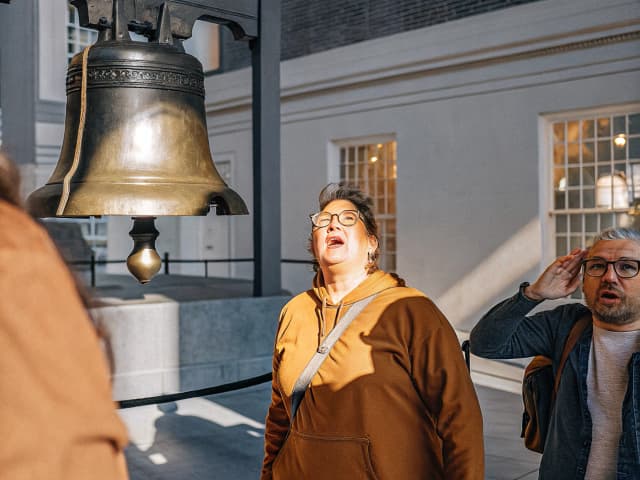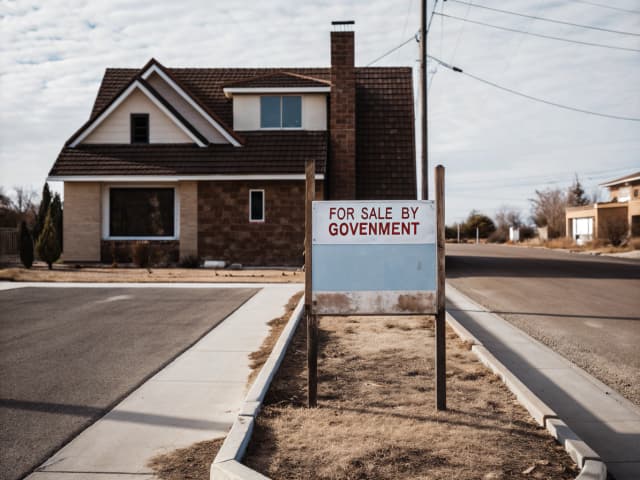Data Collection & Government Transparency

Contractors: discipline: building law violations.
Expands contractor disciplinary actions to include violations of architecture and engineering licensing laws. Requires contractors to comply with additional professional licensing requirements across multiple fields. Authorizes the Contractors State License Board to enforce violations of expanded building laws. Incorporates structural pest control regulations into state building law requirements.
Contractors: discipline: building law violations.

Expands contractor disciplinary actions to include violations of architecture and engineering licensing laws. Requires contractors to comply with additional professional licensing requirements across multiple fields. Authorizes the Contractors State License Board to enforce violations of expanded building laws. Incorporates structural pest control regulations into state building law requirements.

Information Practices Act of 1977.
Expands state privacy laws to cover local government agencies and strengthens data protection requirements. Broadens the definition of personal information to include biometric, genetic, and neural data. Makes both intentional and negligent privacy violations grounds for employee discipline. Requires agencies to notify residents when their personal data is breached or compromised.
Information Practices Act of 1977.

Expands state privacy laws to cover local government agencies and strengthens data protection requirements. Broadens the definition of personal information to include biometric, genetic, and neural data. Makes both intentional and negligent privacy violations grounds for employee discipline. Requires agencies to notify residents when their personal data is breached or compromised.

California American Freedmen Affairs Agency.
Establishes a new state agency to verify and maintain a registry of American Freedmen residents in California. Creates a Genealogy Office by July 2027 to verify residents' ancestral connections to people enslaved in the U.S. Mandates strict privacy protections for personal data and prohibits sharing information with law enforcement. Requires annual legislative oversight hearings and regular performance audits starting January 2029.
California American Freedmen Affairs Agency.

Establishes a new state agency to verify and maintain a registry of American Freedmen residents in California. Creates a Genealogy Office by July 2027 to verify residents' ancestral connections to people enslaved in the U.S. Mandates strict privacy protections for personal data and prohibits sharing information with law enforcement. Requires annual legislative oversight hearings and regular performance audits starting January 2029.

Local government: legal fee disclosures.
Requires cities and school districts to publicly disclose legal expenses on their websites every two months. Mandates that legal invoices be shared with governing board members upon request without redaction. Exempts disclosure of legal fees for active litigation and attorney-client privileged information. Aims to prevent wasteful spending on legal services by increasing transparency of public fund usage.
Local government: legal fee disclosures.

Requires cities and school districts to publicly disclose legal expenses on their websites every two months. Mandates that legal invoices be shared with governing board members upon request without redaction. Exempts disclosure of legal fees for active litigation and attorney-client privileged information. Aims to prevent wasteful spending on legal services by increasing transparency of public fund usage.

Descendants of enslaved persons: reparations.
Creates the Bureau for Descendants of American Slavery within the Civil Rights Department. Requires proof of descendant status as a qualifying criterion for benefits, with appeals. Ties genealogy certification to a future law by January 2026 and budget appropriation.
Descendants of enslaved persons: reparations.

Creates the Bureau for Descendants of American Slavery within the Civil Rights Department. Requires proof of descendant status as a qualifying criterion for benefits, with appeals. Ties genealogy certification to a future law by January 2026 and budget appropriation.

Local government: collection of demographic data.
Establishes expanded data collection on employee ancestry for Black or African American groups. Applies to all local governments, with potential state-mandated program and cost reimbursement. Mandates implementation of new data categories starting January 1, 2027.
Local government: collection of demographic data.

Establishes expanded data collection on employee ancestry for Black or African American groups. Applies to all local governments, with potential state-mandated program and cost reimbursement. Mandates implementation of new data categories starting January 1, 2027.

State general obligation bonds: disclosure requirements.
Requires new voter-approved state bonds to include specific goals and performance metrics starting January 2026. Mandates state agencies to post detailed bond spending updates and project outcomes on their websites. Establishes annual reporting requirements to track if bond funds achieve their intended purposes. Requires agencies to collect and publish data measuring the effectiveness of bond-funded projects.
State general obligation bonds: disclosure requirements.

Requires new voter-approved state bonds to include specific goals and performance metrics starting January 2026. Mandates state agencies to post detailed bond spending updates and project outcomes on their websites. Establishes annual reporting requirements to track if bond funds achieve their intended purposes. Requires agencies to collect and publish data measuring the effectiveness of bond-funded projects.

California Public Records Act: personal information of elected and appointed officials.
Expands privacy protections for public officials by prohibiting disclosure of personal data without consent. Requires businesses to remove officials' personal information within 48 hours of receiving a request. Makes it a felony to post officials' private data with intent to cause harm if injury results. Extends privacy protections to family members living with public officials.
California Public Records Act: personal information of elected and appointed officials.

Expands privacy protections for public officials by prohibiting disclosure of personal data without consent. Requires businesses to remove officials' personal information within 48 hours of receiving a request. Makes it a felony to post officials' private data with intent to cause harm if injury results. Extends privacy protections to family members living with public officials.

Data breaches: customer notification.
Requires businesses to notify California residents of data breaches within 30 days of discovery. Mandates notification to the Attorney General within 15 days when breaches affect over 500 residents. Establishes specific format requirements for data breach notices including plain language and clear headings. Requires free identity theft prevention services for 12 months if social security or license numbers are exposed.
Data breaches: customer notification.

Requires businesses to notify California residents of data breaches within 30 days of discovery. Mandates notification to the Attorney General within 15 days when breaches affect over 500 residents. Establishes specific format requirements for data breach notices including plain language and clear headings. Requires free identity theft prevention services for 12 months if social security or license numbers are exposed.

California Commission on the United States Semiquincentennial.
Establishes a commission to coordinate California's celebration of America's 250th anniversary in 2026. Requires all funding to come from private donations and federal grants with no state money used. Dissolves the commission if sufficient private funding is not secured by February 1, 2026. Mandates transfer of all commission records to State Archives by December 31, 2028.
California Commission on the United States Semiquincentennial.

Establishes a commission to coordinate California's celebration of America's 250th anniversary in 2026. Requires all funding to come from private donations and federal grants with no state money used. Dissolves the commission if sufficient private funding is not secured by February 1, 2026. Mandates transfer of all commission records to State Archives by December 31, 2028.

State agencies and departments: strategic plans: diversity, equity, and inclusion.
Requires equity-focused, data-driven strategic planning for executive agencies. First reporting deadline is April 1, 2026, with annual updates. Mandates consultation with unions, Legislature, clients, suppliers, and contractors. Adds data analysis, inclusive practices, racial equity, and tribal engagement updates if feasible.
State agencies and departments: strategic plans: diversity, equity, and inclusion.

Requires equity-focused, data-driven strategic planning for executive agencies. First reporting deadline is April 1, 2026, with annual updates. Mandates consultation with unions, Legislature, clients, suppliers, and contractors. Adds data analysis, inclusive practices, racial equity, and tribal engagement updates if feasible.

Environmental protection: biological resources data: State Energy Resources Conservation and Development Commission: powerplants: power lines: applications.
Requires public disclosure of biological data submitted in power plant certification applications. Mandates the Department of Fish and Wildlife to review sensitive species location data before public release. Establishes safeguards to protect endangered species by limiting disclosure of certain habitat information.
Environmental protection: biological resources data: State Energy Resources Conservation and Development Commission: powerplants: power lines: applications.

Requires public disclosure of biological data submitted in power plant certification applications. Mandates the Department of Fish and Wildlife to review sensitive species location data before public release. Establishes safeguards to protect endangered species by limiting disclosure of certain habitat information.

Professional fiduciaries.
Authorizes licensed professional fiduciaries to form professional corporations to provide fiduciary services. Requires professional fiduciary corporations to register with the Secretary of State and comply with strict oversight rules. Expands reporting requirements for fiduciaries to include corporate affiliations and client information. Prohibits courts from appointing unlicensed fiduciaries as guardians, conservators, or trustees.
Professional fiduciaries.

Authorizes licensed professional fiduciaries to form professional corporations to provide fiduciary services. Requires professional fiduciary corporations to register with the Secretary of State and comply with strict oversight rules. Expands reporting requirements for fiduciaries to include corporate affiliations and client information. Prohibits courts from appointing unlicensed fiduciaries as guardians, conservators, or trustees.

California Public Records Act Ombudsperson.
Establishes a Public Records Act Ombudsperson to review denied requests for government records through 2029. Requires the Ombudsperson to issue determinations on denied records requests within 30 days. Mandates state agencies provide requested records if the Ombudsperson determines they were wrongly withheld. Creates a process for individuals to protect their private information during records reviews.
California Public Records Act Ombudsperson.

Establishes a Public Records Act Ombudsperson to review denied requests for government records through 2029. Requires the Ombudsperson to issue determinations on denied records requests within 30 days. Mandates state agencies provide requested records if the Ombudsperson determines they were wrongly withheld. Creates a process for individuals to protect their private information during records reviews.

Civil Rights Department: antidiscrimination campaigns.
Requires the Civil Rights Department to create anti-discrimination media campaigns, funded by appropriation. Establishes the start by the later of July 1, 2026 or one year after appropriation. Creates a working group to plan data-driven ad distribution using hate crime data. Exempts the working group from the Bagley-Keene Open Meeting Act; includes experts and legislators.
Civil Rights Department: antidiscrimination campaigns.

Requires the Civil Rights Department to create anti-discrimination media campaigns, funded by appropriation. Establishes the start by the later of July 1, 2026 or one year after appropriation. Creates a working group to plan data-driven ad distribution using hate crime data. Exempts the working group from the Bagley-Keene Open Meeting Act; includes experts and legislators.

California Public Records Act: cyberattacks.
Allows agencies to extend public records request deadlines when cyberattacks prevent access to electronic records. Requires state emergencies to directly impact an agency's ability to process records requests for deadline extensions. Limits deadline extensions to only the duration of system outages caused by cyberattacks. Maintains agencies' obligation to provide non-electronic records even during cyberattacks.
California Public Records Act: cyberattacks.

Allows agencies to extend public records request deadlines when cyberattacks prevent access to electronic records. Requires state emergencies to directly impact an agency's ability to process records requests for deadline extensions. Limits deadline extensions to only the duration of system outages caused by cyberattacks. Maintains agencies' obligation to provide non-electronic records even during cyberattacks.

State and local agencies: demographic data.
Requires agencies to collect and tabulate MEAN demographic data in separate categories. Applies to all cities and state agencies, excluding CSU and UC. Implements a phased timeline for MEAN data reporting and public access. Protects privacy by prohibiting PII disclosure and enabling aggregation.
State and local agencies: demographic data.

Requires agencies to collect and tabulate MEAN demographic data in separate categories. Applies to all cities and state agencies, excluding CSU and UC. Implements a phased timeline for MEAN data reporting and public access. Protects privacy by prohibiting PII disclosure and enabling aggregation.

Civil Rights Department: racially motivated eminent domain.
Establishes a restitution pathway for racially motivated eminent domain. Creates a process in which CRD accepts applications, investigates, and issues determinations. Offers remedies including return of property, substitute property, or monetary compensation. Prioritizes titleholders and heirs; funding is by appropriation; allows in-house counsel.
Civil Rights Department: racially motivated eminent domain.

Establishes a restitution pathway for racially motivated eminent domain. Creates a process in which CRD accepts applications, investigates, and issues determinations. Offers remedies including return of property, substitute property, or monetary compensation. Prioritizes titleholders and heirs; funding is by appropriation; allows in-house counsel.